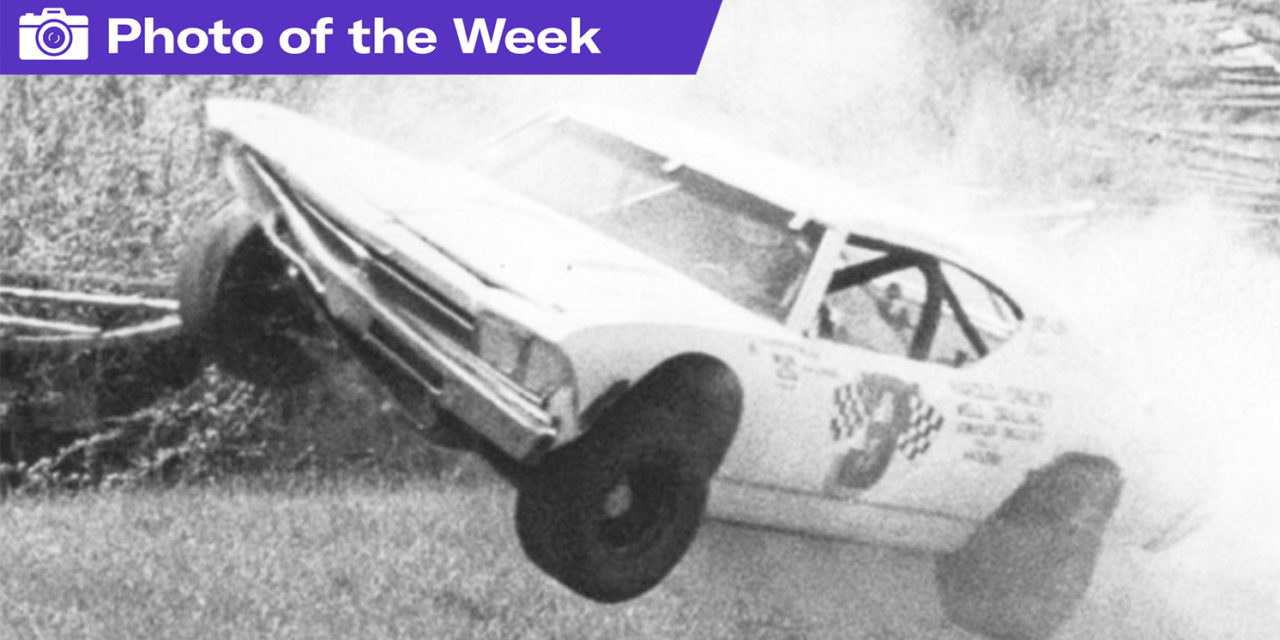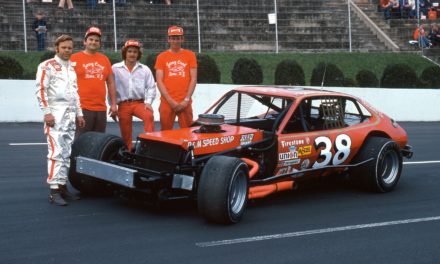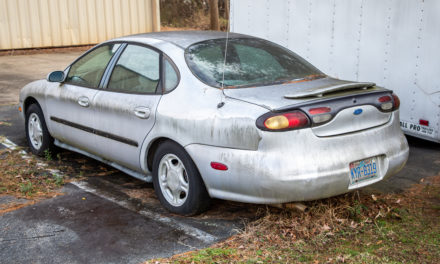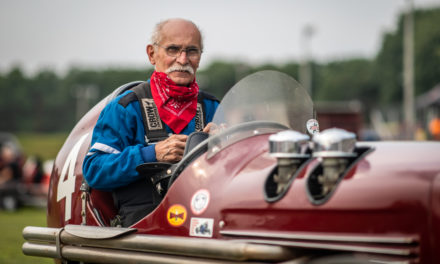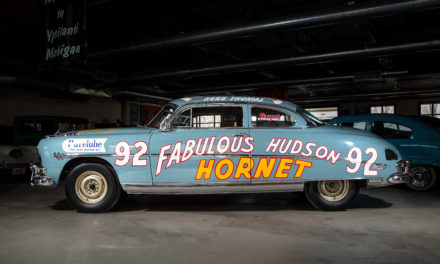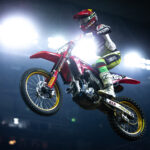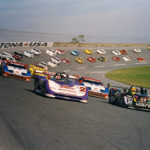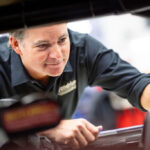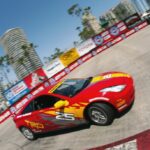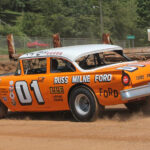Plenty of race-track corners have earned nicknames for their complexity or pucker factor. But Thunder Road’s “Widowmaker” isn’t even a corner—it’s a retaining wall.
The front-stretch barrier at Thunder Road Speedbowl in Barre, Vermont, is an ominous slab of slanted concrete slathered in green and yellow house paint. Back in the early 1970s, while racing at the paved oval, East Coast hotshoe Rene Charland smacked the wall in his Chevelle stocker. A photographer caught the scene: Four-time NASCAR Sportsman Series champion, vaulted into the air.
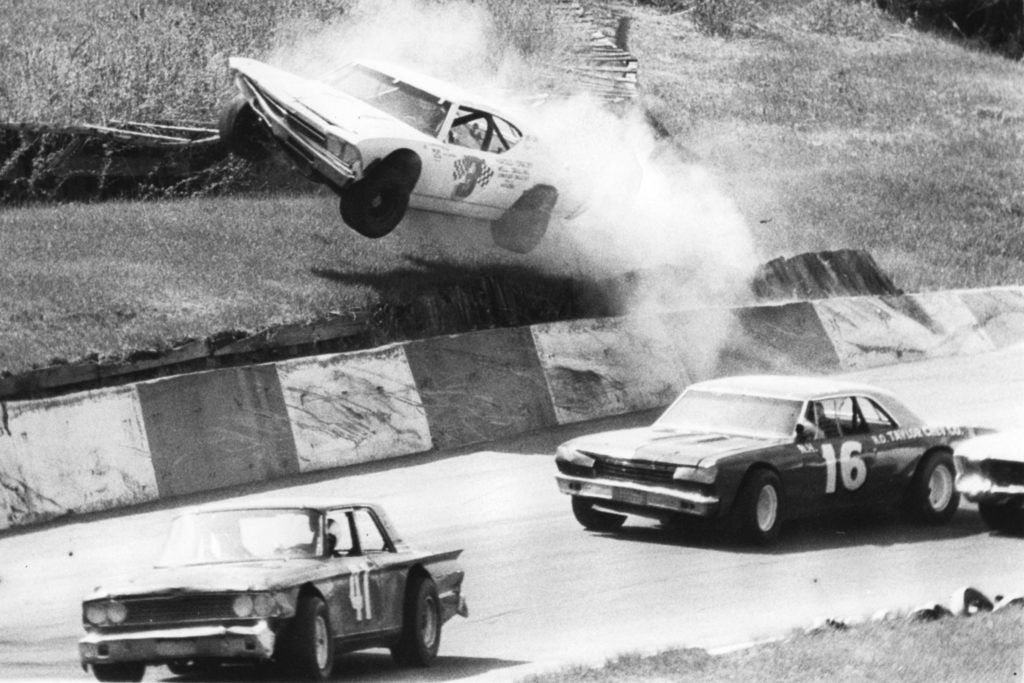
Yep, I’m flying through the air. This is not good. (Photo by ISC Images & Archives via Getty Images)
“They call it the Widowmaker for a reason,” says Flo Racing correspondent Matthew Dillner. “I’ve seen a few people get bit by it even in the times that I’ve gone.”
It’s a recipe for disaster. The racing groove narrows on the exit of turn four, forcing drivers to either give quarter or flirt with the Widowmaker.
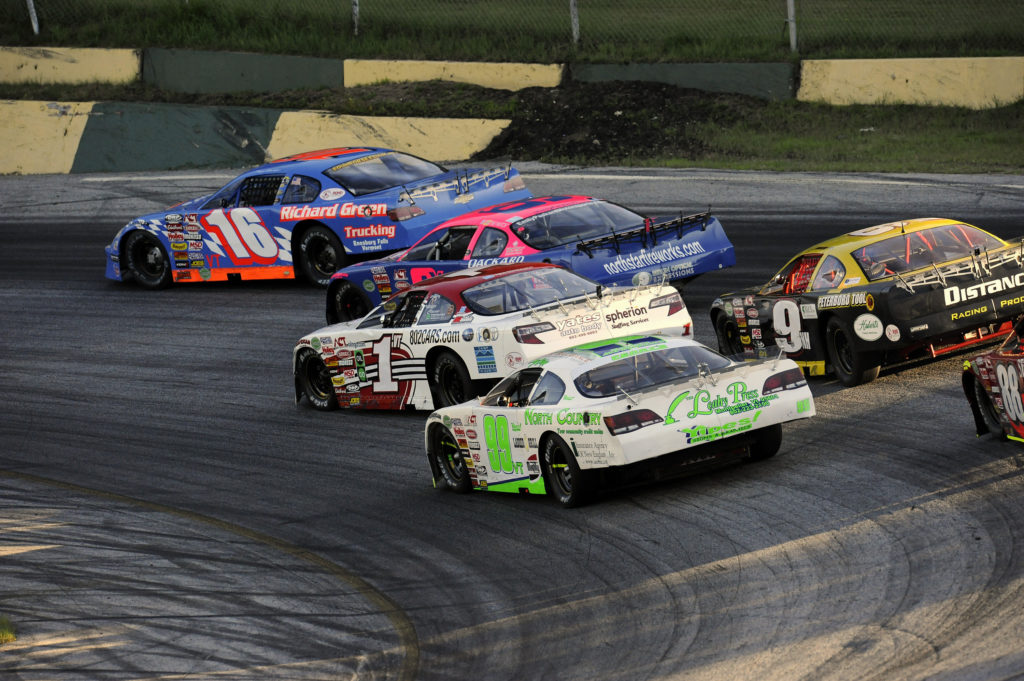
Thunder Road action, 2014 (Photo by David Allio/Icon SMI/Corbis/Icon Sportswire via Getty Images)
The ominous wall is just part of the formula that sets this Vermont quarter-mile oval apart from the numerous short tracks dotting the American countryside. Broadcaster and NASCAR Hall-of-Famer Ken Squire founded the track in 1960 with support from a local paving contractor. Squire chose to run races on Thursday night rather than on Saturday—a tradition that remains today—because Thursday was when the day workers from the local quarry got their paychecks.
Since then, the track has become a staple for Northeast short-track ringers. Plenty of national-level talents circle the light poles every Thursday night, too, but Thunder Road’s distance from NASCAR’s primetime stage in the American Southeast hides many local drivers from the spotlight. Vermont may not be considered a racing hotbed, but the level of competition and the car count here are exceptional.
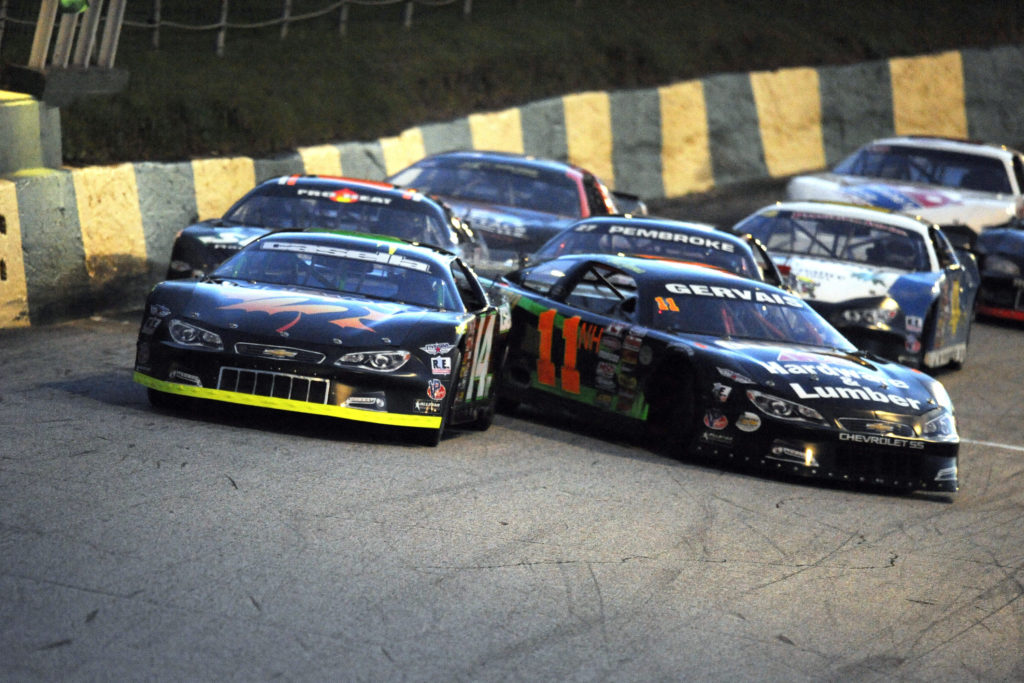
(Photo by David Allio/Icon SMI/Corbis/Icon Sportswire via Getty Images)
Even Vermont’s current Governor Phil Scott gets in on the action. Prior to serving as Vermont’s face, Scott won the 1996 and 1998 Thunder Road late-model championships. And he’s a two-time winner of the track’s most illustrious race: the Milk Bowl.
Named after Vermont’s dairy industry—which produces 2.7 billion gallons of milk annually—the historic race celebrated its 60th running in 2022.
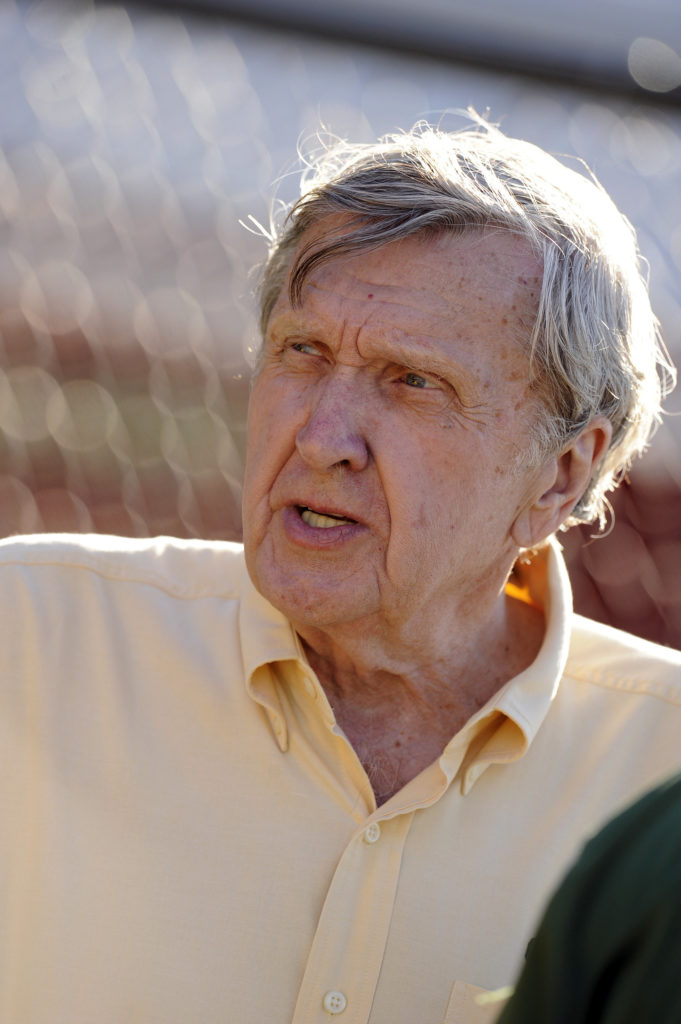
Ken Squire (Photo by David Allio/Icon SMI/Corbis/Icon Sportswire via Getty Images)
Squire, the man who started it all, is no longer the owner but is still a mainstay at the track, belting his legendarily verbose lines from the press box. “It’s like magic to hear a voice that you grew up listening to at Daytona or Talladega calling a late-model race tucked in the mountains of Vermont,” says Dillner.
From its origin story to its color scheme, “There’s nothing typical about Thunder Road,” Dillner says. Even the spectators have an unusual experience: In the photo, behind Charland’s airborne Chevelle, you’ll spot a grassy knoll. Known as Bud Hill, the hillside offers spectators a unique vantage point from an unconventional perch—but bring a trowel. Dillner said that, on his first visit, he had to borrow another fan’s scoop to dig into the hillside and level his camping chair.

(Photo by ISC Images & Archives via Getty Images)

